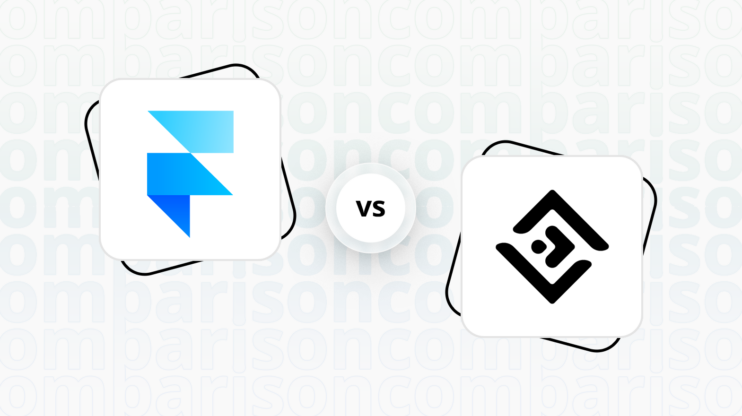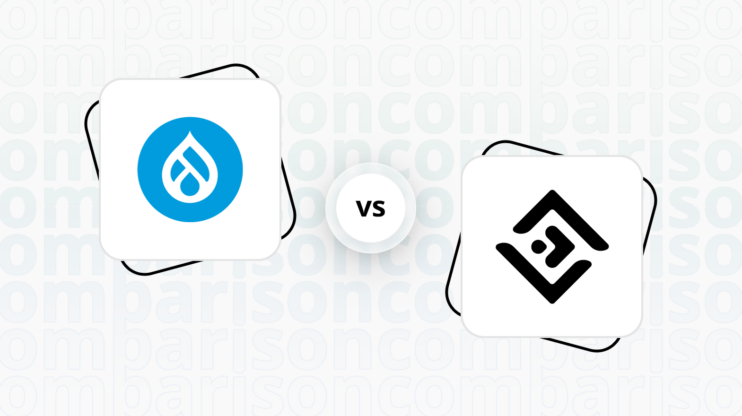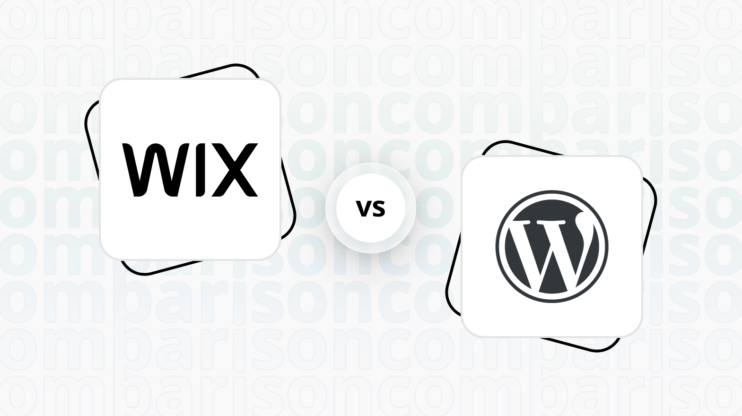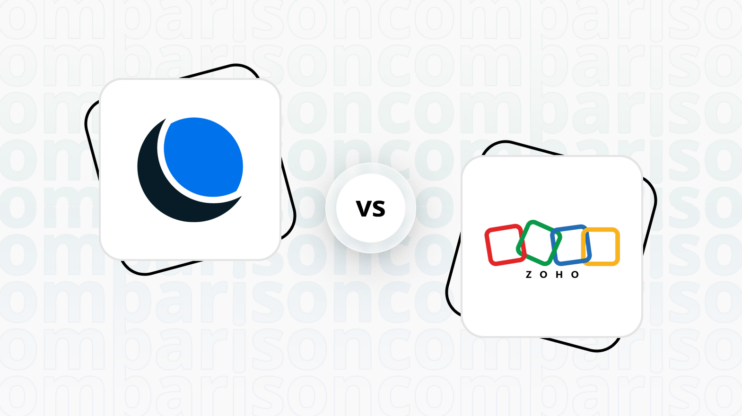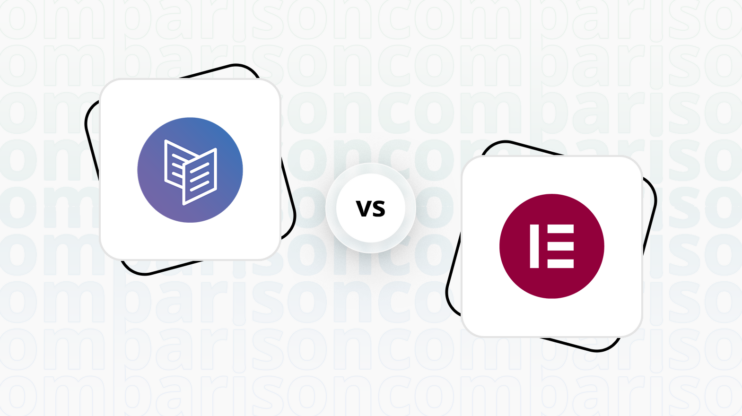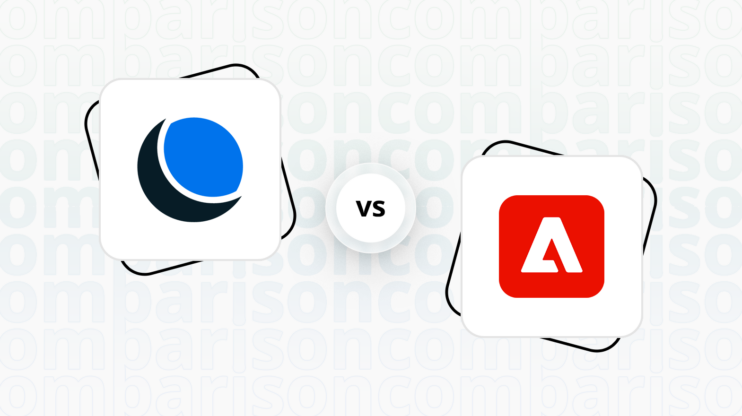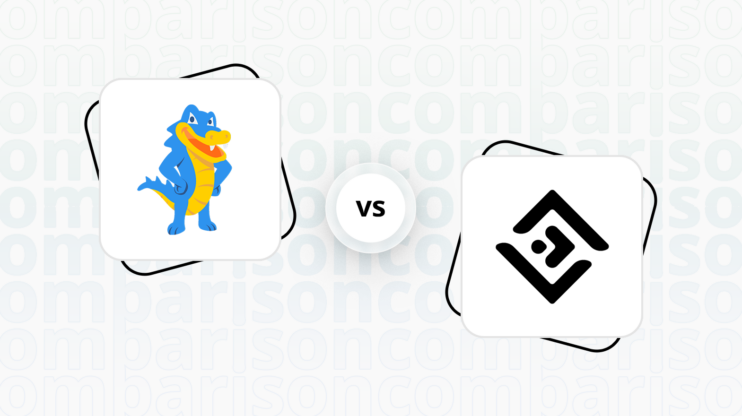Final verdict
Framer and Drupal cater to different audiences with their unique strengths, making the choice between them dependent on the user’s specific needs.
-
Framer (Overall Grade: 7.1/10)
excels in providing an intuitive, AI-driven design experience, making it ideal for users seeking a modern, no-code approach to website building. Its strengths lie in design functionalities, ease of use, and website speed optimization. However, it falls short in areas like ecommerce capabilities and customer support compared to Drupal. Framer is best suited for designers and teams looking for a collaborative platform that bridges the gap between design and development. -
Drupal (Overall Grade: 6.4/10)
stands out for its flexibility, extensive customization options, and strong community support. It offers a robust platform for users requiring complex websites with custom functionalities, thanks to its open-source nature and vast array of modules. Drupal excels in ecommerce solutions, plugins and integrations, and security features. It is the go-to choice for developers and organizations looking for a scalable, secure CMS capable of handling diverse web development projects.

|

|
|
|---|---|---|
|
Design functionalities & templates |
8.5 |
7.8 |
|
Ease of use |
7.1 |
5.4 |
|
Ecommerce |
5.9 |
7.5 |
|
Website Editors |
7.6 |
7.5 |
|
Product testing options |
6.2 |
7.1 |
|
Price |
7.7 |
5.7 |
|
Hosting quality |
7.1 |
0 |
|
Website speed optimization |
7.4 |
6.4 |
|
Plugins and integrations |
7.6 |
8.6 |
|
Marketing features |
7.2 |
8.0 |
|
Customer support |
5.6 |
6.7 |
|
Security |
8.2 |
8.3 |
|
AI capabilities |
7.6 |
7.5 |
|
User Management |
7.4 |
9.1 |
| Overall |
7.1 |
6.4 |
Best for ecommerce
 5.9
5.9
 7.5
7.5
Verdict
: For users seeking a flexible and comprehensive ecommerce solution, Drupal is the superior choice, offering extensive customization and a wide range of features. Framer, while innovative with its AI-driven design, falls short in native ecommerce capabilities.
-
Framer
: Offers a unique approach with AI-driven design and an intuitive interface, making it suitable for users focused on design and user experience. However, its reliance on third-party integrations for ecommerce functionalities may limit its appeal for users looking for an all-in-one solution. -
Drupal
: Stands out for its robust ecommerce capabilities through Drupal Commerce, including advanced product management, customizable workflows, and a variety of payment gateways. Its open-source nature allows for extensive customization, making it ideal for users with specific ecommerce needs and the technical expertise to implement them.
Best for informational & business websites
 7.5
7.5
 7.5
7.5
Verdict
: With identical scores for informational and business websites, the choice between Framer and Drupal hinges on specific needs: Framer for AI-driven design and ease of use, and Drupal for its flexibility and extensive customization options.
-
Framer
: Framer shines for those seeking an intuitive, AI-enhanced design experience. It’s particularly suited for users who prioritize ease of use and innovative design features but may not require the depth of customization and scalability that comes with a CMS like Drupal. -
Drupal
: Drupal is the go-to for users needing a robust, scalable CMS capable of handling complex informational sites. Its strength lies in its flexibility, extensive customization through modules, and a strong community, making it ideal for those with web development experience or access to developer resources.
Detailed comparison
Design functionalities & templates
Design FunctionalitiesRepresents how well each platform allows for creative design and customization of websites.Score Components:
- Template Variety (30%): Range and quality of design templates.
- Customization (30%): Flexibility and options for design alterations.
- User Interface (20%): Ease and intuitiveness of the design process.
- Responsiveness (10%): Adaptability to different devices and screen sizes.
- Innovation (10%): Unique design features and tools.
 8.5
8.5
 7.8
7.8
🏆
Winner: Framer.
If you’re looking for a platform that offers more creative control and a wide array of design features, Framer is the preferred choice.
Framer offers a diverse array of over 1,000 customizable website templates and designs, catering to various industries and project requirements. It stands out for its robust design and prototyping features, including responsive design capabilities, real-time collaboration, and extensive import options from other design tools.
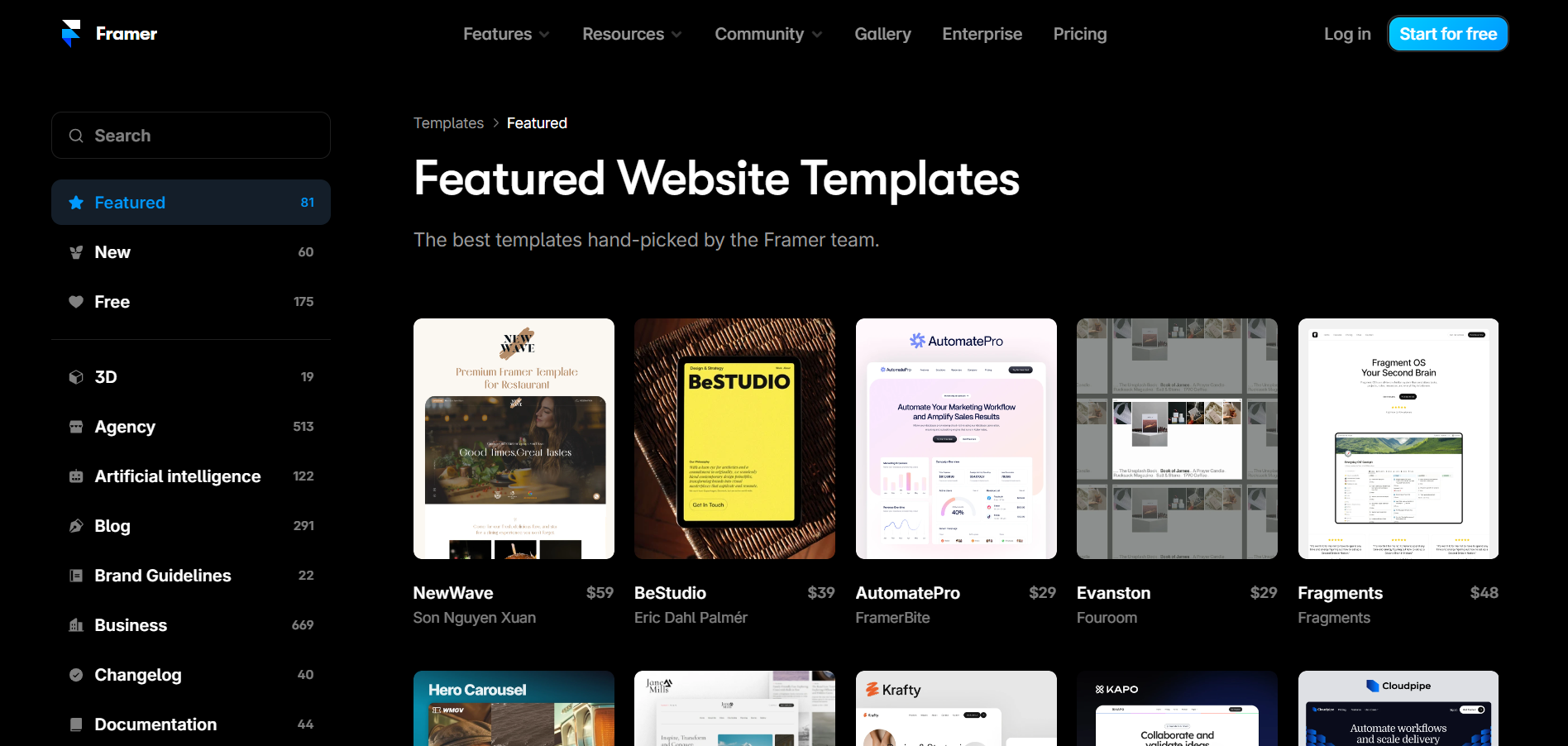

Compared to Framer, Drupal, as a highly flexible and powerful content management system, offers a vast array of templates and designs to cater to virtually any website need. With thousands of themes available, users can choose from minimalist designs, industry-specific layouts, and highly customizable multipurpose themes.
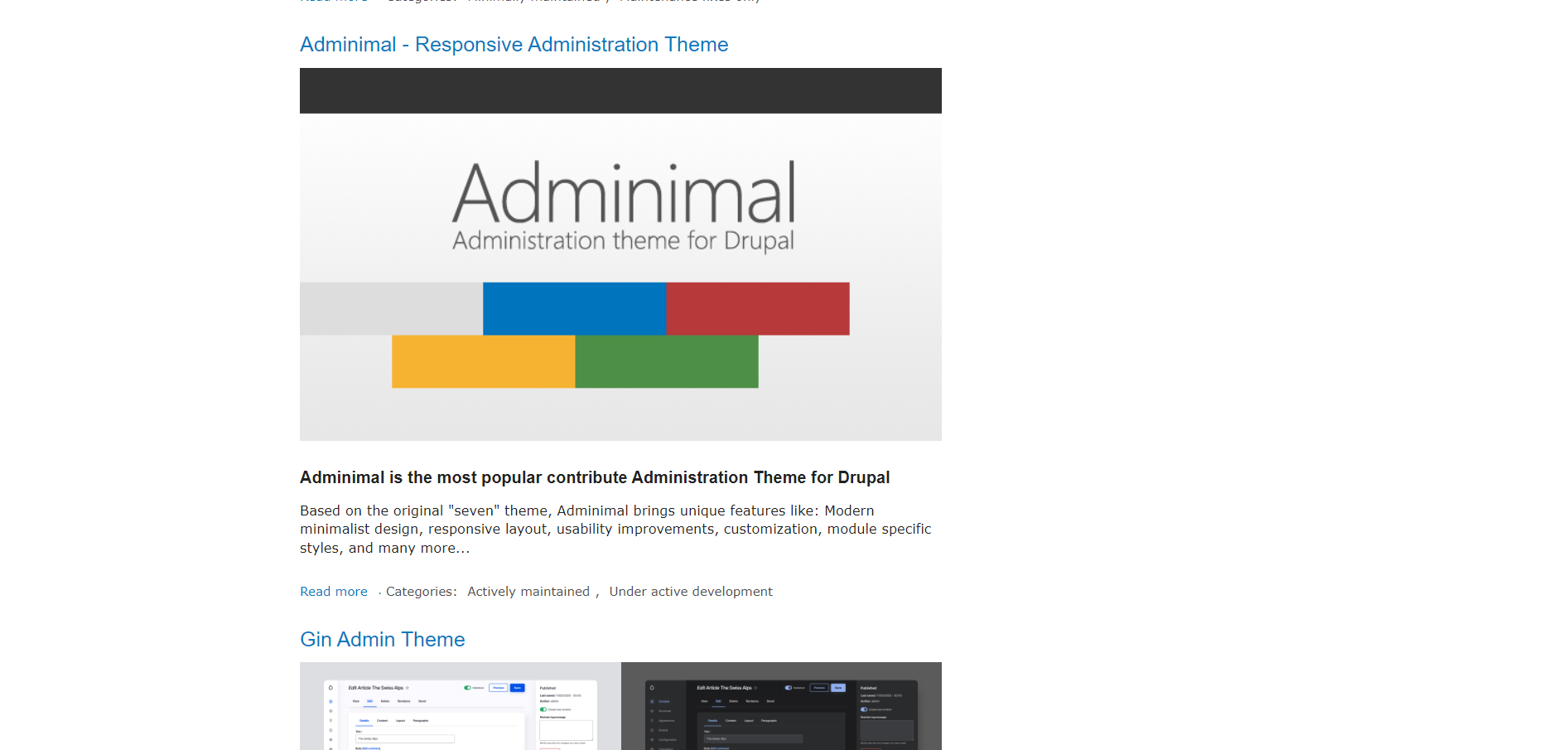
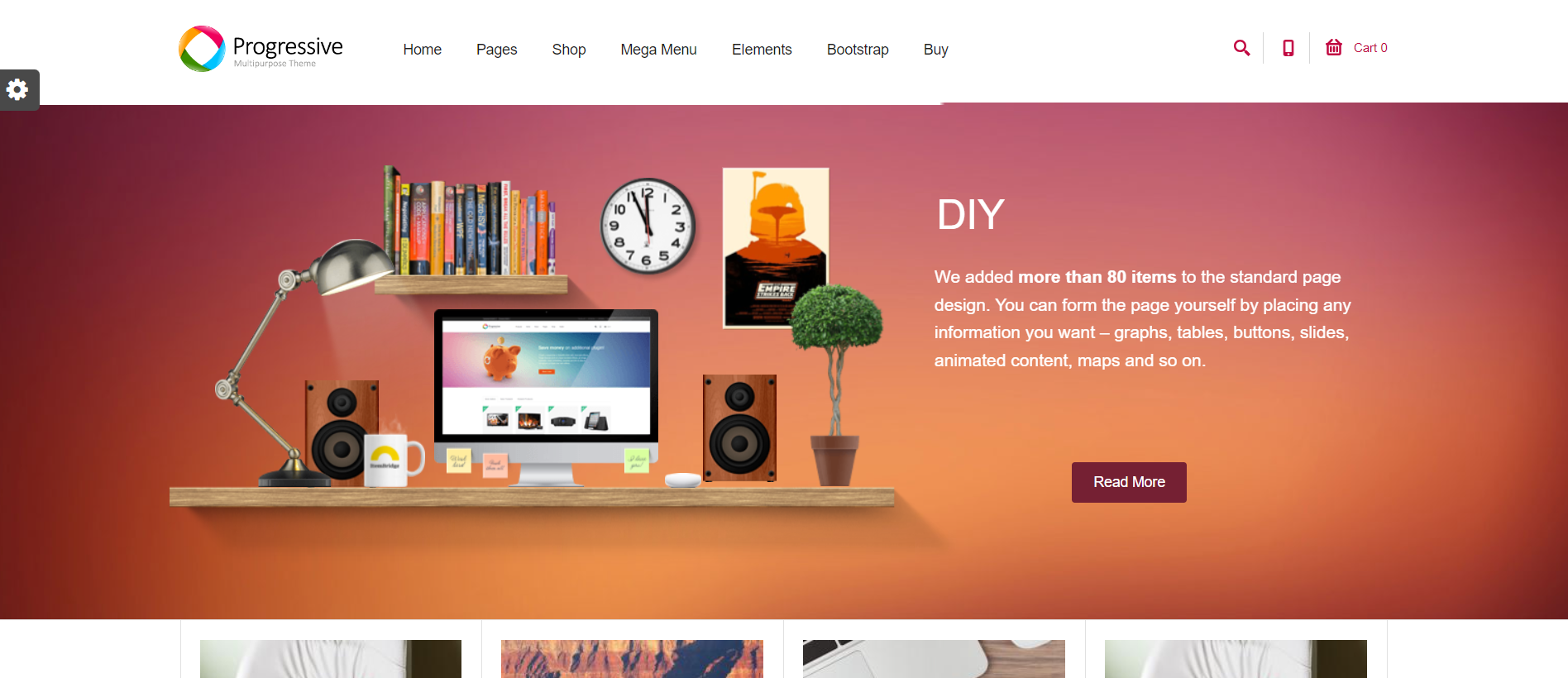
Get a head start on website creation with AI
Create a custom website tailored to your business needs 10X faster with 10Web AI Website Builder!
Ease of use
Ease of useReflects the platform’s overall user-friendliness.Score
Components:
- Learning curve (40%): Quickness and ease of getting started.
- Interface design (30%): Simplicity and intuitiveness of layout.
- User guidance (20%): Quality of tutorials and support.
- Flexibility (10%): Adaptability to various user skills.
 7.1
7.1
 5.4
5.4
🏆 Winner: Framer
. Scoring 7.1, Framer offers an intuitive user interface and AI-driven design, making it accessible for both novices and experienced designers. Drupal, with a score of 5.4, provides a flexible and extensible platform but with a steeper learning curve, especially for those new to web development. If ease of use is a priority, Framer is the clear winner in this category.
Learning Resources
🏆 Winner: Drupal
. Both platforms offer solid learning resources, but Drupal goes a step further with its extensive official documentation, vibrant community forum, and a variety of online courses and tutorials, making it easier for users to learn and adapt.
For ecommerce
EcommerceMeasures the platform’s effectiveness in supporting online business activities.Score Components:
- Ecommerce themes and templates (20%): Variety and design of templates.
- Product management (25%): Ease of managing and organizing products.
- Payment options (25%): Variety and convenience of payment methods.
- Ecommerce features (20%): Features for managing an ecommerce store.
- Integration (10%): Compatibility with external e-commerce tools and services.
 5.9
5.9
 7.5
7.5
When it comes to ecommerce, Framer and Drupal offer different approaches. Framer, while offering an intuitive interface and AI tools, lacks native ecommerce features and relies on third-party integrations like Ecwid for ecommerce functionalities. On the other hand, Drupal, an open-source CMS, offers a flexible ecommerce solution with its Drupal Commerce module, providing a wide array of features including product management, shopping cart, payment gateway integration, and customizable workflows. However, Drupal has a steep learning curve and may require extensive customization to meet specific ecommerce needs.

|

|
|
|---|---|---|
|
Ecommerce themes and templates |
7.0 |
7.8 |
|
Product page customization |
5.5 |
8.3 |
|
Payment processing and commissions |
6.5 |
7.5 |
|
POS capabilities |
3.0 |
5.5 |
|
Payment gateways |
6.0 |
7.7 |
|
Product numbers |
6.0 |
7.0 |
|
Additional ecommerce features |
5.5 |
8.0 |
Framer ecommerce features:
- Ecwid integration
Drupal ecommerce features:
- Shopping Cart and Checkout Process
- Payment Gateway Integration
- Order Management and Invoicing
- Tax Calculation and VAT Support
- Shipping and Fulfillment
- Promotions and Discounts
- Reporting and Analytics
- Security and Compliance
Ecommerce themes & templates
Framer offers 97 website templates specifically designed for ecommerce, providing a wide range of options for various business needs. These templates are highly customizable, allowing for easy adjustments to colors, fonts, layouts, and integration with essential ecommerce tools. Both free and paid options are available, catering to businesses of all sizes looking to enhance their online presence and sales capabilities.
On the other hand, Drupal offers a wide array of ecommerce themes designed to cater to different types of online stores, from clean and simple designs to more sophisticated and feature-rich options. These themes are built with responsiveness in mind, ensuring that stores function seamlessly across various devices. Themes like Fiora, DrupalMag, and Storefront highlight the diversity available, offering customization options to match the unique needs of each business.
Product page customization
Framer primarily focuses on expanding design possibilities for ecommerce. However, it lacks inherent ecommerce functionalities and instead heavily depends on integrating with platforms such as Shopify and Ecwid. Additionally, while Framer allows for some customization of product pages, these modifications are generally limited to design and layout alterations.
In contrast, Drupal offers extensive customization possibilities for product pages through its modular architecture, allowing for detailed content types, flexible displays with Views, and theme customizations. The Drupal Commerce module enriches e-commerce functionalities, enabling tailored product management, checkout flows, and payment systems. With the ability to develop custom modules, Drupal provides a range of possibilities to meet specific e-commerce needs.
Payment processing
Framer supports Stripe for payment processing, enabling a wide range of payment options including one-time payments, subscriptions, and more, without requiring coding. While specific transaction fees were not mentioned, such fees typically depend on Stripe’s pricing. Framer’s focus is on online transactions and e-commerce integrations, and there’s no explicit mention of native POS functionality.
Drupal supports a wide range of payment gateways through third-party modules, including popular ones like PayPal, Stripe, and Authorize.Net. These modules enable seamless integration for e-commerce functionalities on Drupal sites. While Drupal itself does not charge any commissions or transaction fees, the individual payment gateways integrated with it do have their own fee structures, which typically include per-transaction charges and may also have monthly fees. The specific fees depend on the chosen payment gateway and the terms of service agreed upon by the website owner.
Website Editors
Website EditorsEvaluates the platforms’ website building and editing capabilities.Score Components:
- Customization tools (40%): Range and power of editing features.
- Editor usability (30%): User experience within the editor.
- Design flexibility (20%): Freedom in layout and design changes.
- Update and maintenance ease (10%): Simplicity of updating and maintaining the site.
 7.6
7.6
 7.5
7.5
🏆
Winner: Framer
. Framer, with a score of 7.6, offers a robust set of tools for creating interactive and responsive designs, including a wide array of pre-built components, real-time collaboration features, and the ability to integrate with other design tools and workflows. Users can leverage Framer’s editor to craft detailed animations, fine-tune interactions, and test their designs across various screen sizes and devices. Additionally, its code export feature allows for seamless transition from design to development, making it a versatile choice for teams aiming to create polished, user-centric websites.
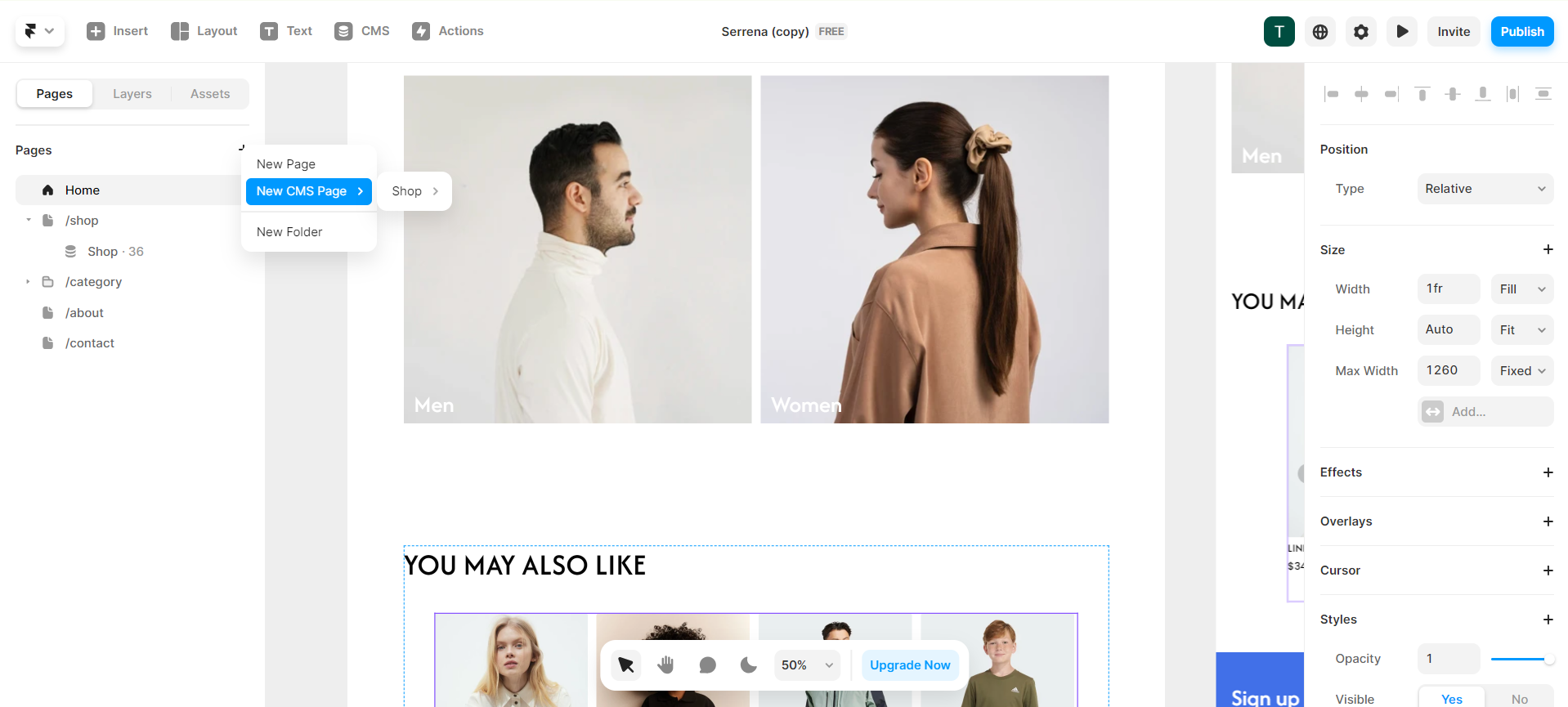
Drupal’s editor, scoring 7.5, offers a wide range of features tailored for content creation and management. It supports rich text editing, enabling users to format text, insert links, images, and media, as well as create tables and lists with ease. The editor is highly customizable, allowing administrators to configure toolbars and options according to the needs of their site. Furthermore, it integrates seamlessly with Drupal’s content management system, supporting features like automatic content saving, version control, and access control, making it a powerful tool for building and managing diverse web content.
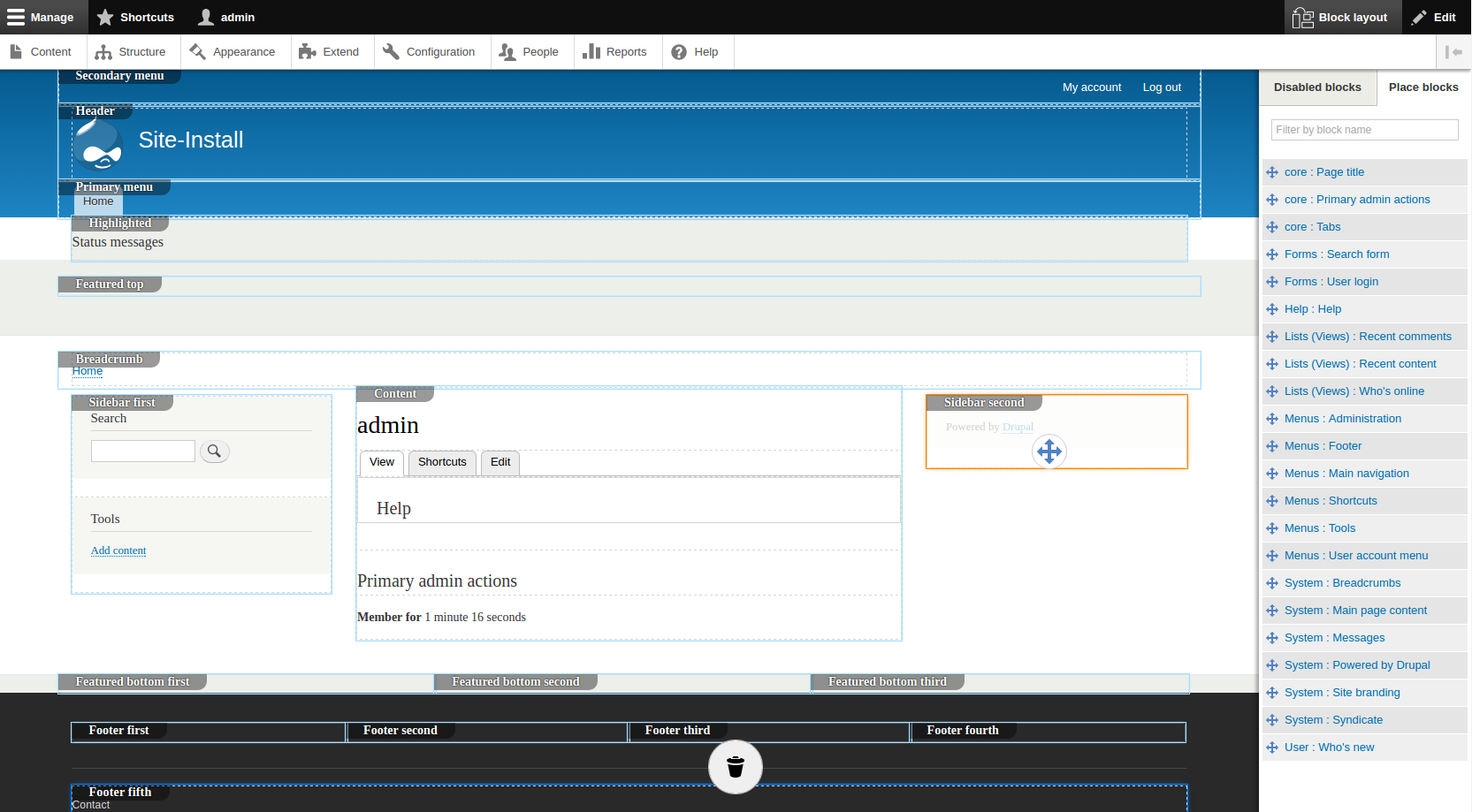
Mobile editor/app
 4.5
4.5
 0
0
🏆
Winner: Framer
. Both Framer and Drupal lack a dedicated mobile editor app. However, Framer allows users to modify their website using a mobile browser, albeit with certain restrictions and a noted inconvenience. On the other hand, Drupal does not offer any mobile editing capabilities. Therefore, despite its limitations, Framer is the winner in this category due to the availability of a mobile editor.
Product testing options
Product Testing OptionsAssesses the options for trying out platform features before commitment.Score Components:
- Trial quality (40%): Extent and usefulness of the trial or free version.
- Feature accessibility (30%): How many features are available to test.
- Trial duration (20%): Length of the trial period.
- Ease of transition (10%): Smoothness of moving from trial to paid plans.
 6.2
6.2
 7.1
7.1
Overall Result
:
Drupal Wins
. Drupal scores 7.1 in product testing options, slightly higher than Framer’s 6.2. Both platforms offer a free version, but Framer allows for some premium features to be tested in the free version. However, Drupal, being an open-source CMS, doesn’t require any payments, hence no need for a money-back guarantee. Framer, on the other hand, offers a money-back guarantee only in some regions.

|

|
|
|---|---|---|
|
Free Plan |
Yes | Yes (open-source software) |
|
Trial Duration |
No | No |
|
Testing Premium Features |
Possible with free version | No |
|
Money Back Guarantee |
Only in some regions | Not applicable (No payments required) |
Price
PriceLooks at the cost-effectiveness and value for money of each platform.Score Components:
- Plan value (40%): What each pricing tier offers.
- Transparency and clarity (30%): Clearness of pricing structures.
- Flexibility of plans (20%): Range of options to suit different budgets.
- Hidden costs (10%): Additional expenses not included in the plan.
 7.7
7.7
 5.7
5.7
Framer offers a range of pricing plans, including a free option and various paid plans, with discounts available for annual billing. Drupal, on the other hand, is an open-source platform and is completely free, but users may need to purchase a domain, web hosting, and website builder subscriptions separately.

|

|
|
|---|---|---|
|
Free |
Free (Free/month): Allows 3 websites built on a framer.website subdomain with Framer branding in the footer. Limited to 1,000 traffic visitors and 1,000 CMS items. |
No offering at this amount. |
|
$0-$10 |
Mini ($10/month): Removes Framer branding, allows using a custom domain, includes collaboration with an additional cost for extra editors, custom code embedding, e-commerce support, and limited CMS items. Offers a monthly visitor limit of 2,000 and 1GB bandwidth. Value for price: 6.5 |
No offering at this amount. |
|
$10-$20 |
Basic ($20/month): Offers all Mini features plus increased limits for CMS items (1,000) and traffic (10,000 visitors per month), along with 10GB bandwidth. Value for price: 7.5 |
No offering at this amount. |
|
$30+ |
Pro ($30/month): Enhances Basic plan features with a significant increase in CMS items (10,000), traffic (100,000 visitors per month), and bandwidth (100GB), among other advanced features. Value for price: 8.5 |
No offering at this amount. |
location. As a result in rare cases the prices displayed here can differ from the ones you see on their
websites.
Hosting quality
Hosting
qualityExamines the reliability and performance of the hosting solutions.Score Components:
- Uptime (40%): Consistency and reliability of website availability.
- Speed (30%): Loading times and performance.
- Bandwidth and storage (20%): Sufficiency of resources provided.
- Data centers (10%): Quality and distribution of hosting infrastructure.
 7.1
7.1
 0
0
🏆
Winner: Framer
Framer offers hosting included in all their plans, with a 99.9% uptime and data centers in the US, Ireland, and Singapore. On the other hand, Drupal does not directly provide hosting services, and the uptime, uptime guarantee, and data centers depend on the hosting provider chosen by the user. Therefore, Framer has a higher hosting quality score.

|

|
|
|---|---|---|
|
Do they offer hosting? |
Yes, included in all their plans |
No, Drupal itself does not directly provide hosting services |
|
Data Centers: |
4 data centers globally: 2 in US, 1 in Ireland, 1 in Singapore |
Data centers depend on hosting providers |
|
Type of hosting: |
Cloud Hosting |
Drupal itself isn’t a hosting platform, there are various options when choosing the type of hosting for websites built with Drupal, such as: Shared Hosting, VPS Hosting, Dedicated Server Hosting, Cloud Hosting |
|
Uptime: |
99.9% |
Uptime & uptime guarantee depends on hosting provider |
|
Uptime Guarantee: |
Only for enterprise plan, 99.99% |
Uptime & uptime guarantee depends on hosting provider |
Website Speed Optimization
Website Speed OptimizationEvaluates optimization of website loading timesScore Components:
- PageSpeed Score (30%): Google’s score indicating performance optimization.
- Loading Time (30%): The average time until a website is fully interactive.
- Mobile Optimization (15%): Optimization effectiveness for mobile devices.
- Resource Optimization (15%): Optimizing images, scripts, and other heavy resources.
- CDN Usage (10%): Use of CDN to enhance speed across geolocations.
 7.4
7.4
 6.4
6.4
🏆 Winner: Framer
Both Framer and Drupal prioritize website performance and page speed, but Framer takes the lead with its emphasis on code minification, pre-rendering, caching, and image optimization.

|

|
|
|---|---|---|
|
Focus |
Code Minification, Pre-Rendering, Caching, Image optimization |
User-guided optimization |
|
Performance Tools |
Built-in tools for optimization |
User-guided optimization |
|
Key Strategies |
Code Minification, Pre-Rendering, Caching, Image optimization |
User-guided optimization |
|
Load Times |
Varies depending on optimization and website complexity |
Varies depending on optimization and website complexity |
|
Page Speed Scores Range |
Varies depending on optimization and website complexity |
Varies depending on optimization and website complexity |
|
Core Web Vitals Improvement |
Emphasis on LCP, FID, CLS improvements |
Depends on users |
Framer, a website builder that blends AI-driven design with an intuitive user interface, prioritizes website performance and page speed. It emphasizes code minification, pre-rendering, caching, and image optimization as key strategies for speed optimization. The load times and PageSpeed scores vary depending on the optimization and website complexity. Framer also focuses on improving Core Web Vitals, specifically LCP, FID, and CLS.
On the other hand, Drupal, an open-source content management system (CMS), allows users to optimize almost all aspects of their website. The speed optimization is largely user-guided, with Drupal offering numerous guides and tutorials. The load times and PageSpeed scores vary depending on the optimization and website complexity. The improvement of Core Web Vitals in Drupal depends on the users.
Get a head start on website creation with AI
Create a custom website tailored to your business needs 10X faster with 10Web AI Website Builder!
Plugins and integrations
Plugins and integrationsMeasures the range and effectiveness of additional plugins and integrations.Score Components:
- Variety of options (40%): Range of available add-ons.
- Integration smoothness (30%): Ease of integrating plugins into the site.
- Quality of plugins (20%): Functionality and reliability of the options.
- Custom integration capabilities (10%): Support for custom or third-party integrations.
 7.6
7.6
 8.6
8.6
🏆 Winner: Drupal.
With a score of 8.6, Drupal outperforms Framer, which scores 7.6. Drupal’s extensive array of over 51,000 modules, compared to Framer’s variety of plugins, gives it a significant edge. These modules extend Drupal’s capabilities beyond its core features, enabling functionalities like advanced SEO tools, e-commerce solutions, and custom content types and fields. Key integrations like Commerce for online stores, Views for content display management, and Google Analytics for web traffic analysis exemplify Drupal’s adaptability.
On the other hand, Framer offers powerful integrations that can significantly enhance the functionality of websites built with it, including Lottie animations, 3D animations from Spline, a Gumroad “Buy” button for seamless e-commerce transactions, icons from popular libraries for enhanced visual design, and MailChimp email marketing forms. However, Drupal’s extensive range of modules and higher score give it the upper hand in this comparison.
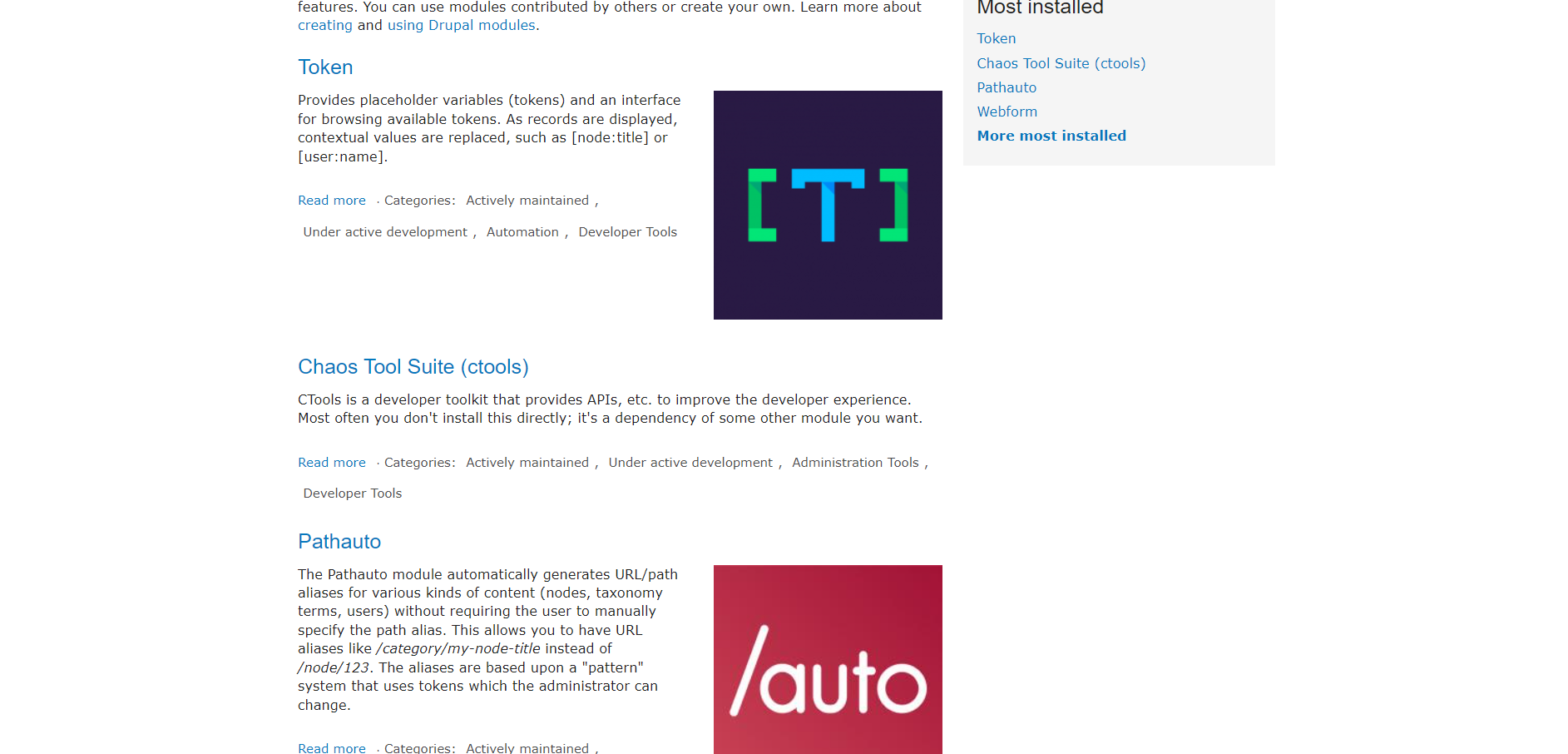
Marketing Features
Design FunctionalitiesRepresents how well each platform allows for creative design and customization of websites.Score Components:
- Template Variety (30%): Range and quality of design templates.
- Customization (30%): Flexibility and options for design alterations.
- User Interface (20%): Ease and intuitiveness of the design process.
- Responsiveness (10%): Adaptability to different devices and screen sizes.
- Innovation (10%): Unique design features and tools.
 7.2
7.2
 8.0
8.0
🏆
Overall Winner: Drupal
. Drupal stands out for its comprehensive SEO features, extensive social media integrations, and robust analytics and reporting capabilities. Framer, while offering a good range of features, lacks in ads and promotions.

|

|
|
|---|---|---|
|
SEO Tools |
|
|
|
Email Marketing |
through integration of third-party services such as Mailchimp |
with third-party extensions, such as MailChimp |
|
Blogging |
|
|
|
Social Media Integration |
|
|
|
Analytics and Reporting |
only on higher plans |
basic built-in features, and Google Analytics integrations through modules |
|
Ads and Promotions |
|
with third-party extensions |
Customer Support
Customer supportEvaluates the quality and availability of support options.Score Components:
- Response time (40%): Speed of support responses.
- Support quality (30%): Effectiveness and helpfulness of the support.
- Availability (20%): Range of support channels (phone, chat, email).
- Resource richness (10%): Quality of self-help and educational materials.
 5.6
5.6
 6.7
6.7
🏆 Winner: Drupal
. Drupal takes the lead in this category with a customer support score of 6.7, compared to Framer’s 5.6. Drupal offers a comprehensive range of customer support options, including a community support system through Drupal.org for forums and documentation, and professional 24/7 support services via providers like Drupal Connect with flexible “pay-as-you-go” plans.
Framer, on the other hand, primarily offers self-help options through their community forum and knowledge base. Users can also email Framer’s customer support for assistance, though details about their working hours and availability are not provided. While Framer offers dedicated support for enterprise customers, there is no detailed information about it. Drupal does not have customer support for enterprises.
Security
SecurityLooks at the platforms’ security measures and data protection.Score Components:
- Data protection (40%): Safeguards for user and customer data.
- SSL and encryption (30%): Implementation of secure connections.
- Compliance (20%): Adherence to industry security standards.
- Regular updates (10%): Frequency of security updates and patches.
 8.2
8.2
 8.3
8.3
🏆
Winner: Drupal
. Drupal’s security measures are slightly more comprehensive than Framer’s, earning it a slightly higher security score. Drupal’s open-source nature allows for a community-driven approach to security, with a dedicated security team continuously working on identifying and fixing vulnerabilities. It also supports advanced security features like two-factor authentication and provides extensive access control capabilities through user roles and permissions.
Framer, on the other hand, also takes security seriously, utilizing Amazon Web Services (AWS) for hosting its services and ensuring data is encrypted at rest. Framer emphasizes product security through secure development practices, external security testing, and a bug bounty program. However, it falls slightly short of Drupal’s security score, making Drupal the winner in this category.
AI Capabilities
AI capabilitiesMeasures the effectiveness of AI-driven features and tools.Score Components:
- Automation efficiency (40%): Impact of AI on streamlining processes.
- Personalization (30%): AI-driven customization for users or customers.
- AI-Assisted design (20%): Role of AI in website design and functionality.
- Data analysis (10%): Use of AI in interpreting user data and analytics.
 7.6
7.6
 7.5
7.5

|

|
|
|---|---|---|
|
AI Builder |
Framer has an AI website builder |
|
|
AI Ecommerce features |
|
Drupal integrates AI across various ecommerce functionalities |
|
AI Content Generation |
Framer AI offers tools for content generation and localization |
Drupal uses AI for content generation, SEO optimization, and multilingual support |
|
Additional AI features |
Framer AI provides tools for style customization and photo editing |
Drupal uses AI for search enhancements, content personalization, and automated content moderation |
🏆 Winner: Framer
. Framer, with a score of 7.6, utilizes AI to simplify the process of creating and optimizing web content. Its AI capabilities are focused on content generation and localization, making it a strong choice for businesses targeting a global audience.
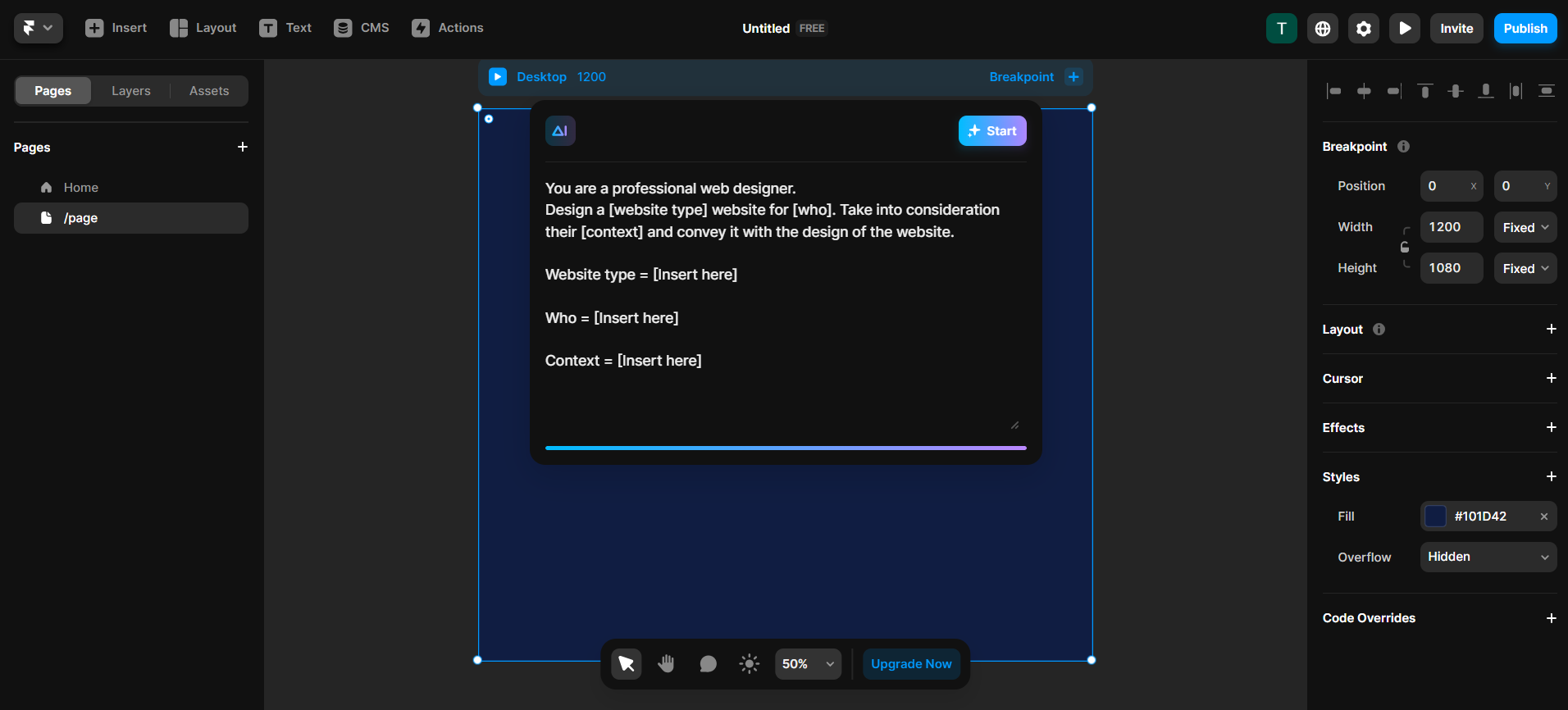
Drupal, with a score of 7.5, integrates AI across various functionalities, enhancing e-commerce through chatbots, content creation, marketing automation, and cognitive services. However, it does not have a native AI builder, which may limit its usability for some users.
User Management
User ManagementAssesses the platforms’ capabilities in managing user roles, permissions, and accessibility.Score Components:
- Role Customization (40%): Flexibility in creating and defining user roles and
permissions. - Ease of Management (30%): User interface and tools for managing users.
- Access Control (20%): Effectiveness of access control measures for different user
levels. - Scalability (10%): Ability to manage a growing number of users efficiently.
 7.4
7.4
 9.1
9.1
🏆 Winner: Drupal
. Both Framer and Drupal offer robust user management features, but Drupal’s flexibility and unlimited user capacity give it an edge.
- Framer supports team collaboration with different plans allowing a varying number of editors; the Team Basic plan allows up to 5 editors, while the Team Pro plan supports up to 10 editors. These plans come with additional features like live collaboration, comments, file storage, and extended version history.
- Drupal’s flexible permission and role system allows for an unlimited number of users to manage and edit a website, only constrained by server capacity and practical management considerations. Administrators can create various roles, such as “Editor” or “Administrator”, each with customized permissions.
Framer User Roles and Access Levels:
| Role | Description | Access Highlights |
|---|---|---|
| Designer | Focuses on the aesthetic and UI/UX aspects of the website. | Can create and modify design elements, utilize animation libraries like Framer Motion, and implement accessibility settings. |
| Content Editor | Manages and curates content for the website, including text, images, and other media. | Can edit CMS content, use localization features for different regions, and modify SEO settings. |
| Developer | Works on more technical aspects, such as custom code and integrations. | Has access to deploy options, can use custom domains, manage project permissions, and apply custom code for further optimization. |
| Project Manager | Oversees the project, coordinating between different roles and ensuring the project meets its deadlines and goals. | Can invite collaborators, assign roles and permissions, and manage versions and rollbacks for efficient site management. |
| Collaborator (General) | A role that can encompass various levels of access based on project needs, including design, content, and deployment tasks. | Access can be customized to include a mix of design, content, and deploy permissions based on the project’s needs and the individual’s role within the team. |
Drupal User Roles and Access Levels:
| Role | Description | Access Highlights |
|---|---|---|
| Editor | Users responsible for content creation, editing, and publishing. | Can create, edit, delete, and publish content; can also manage comments. |
| Moderator | Users focused on site moderation, including comment and user management. | Can approve or delete comments, block users, and manage reported content. |
| Administrator | Users with full access to all administrative features of the site. | Can change site configuration, manage all content, users, permissions, and install modules/themes. |
Additional Features

|

|
|
|---|---|---|
|
SSL Certificate |
|
|
|
Custom Domain |
|
|
|
Free Custom Domain Included |
|
|
|
International Domains |
|
|
|
Mobile Responsive |
|
|
|
Page Speed |
|
|
|
Website Builder Mobile App |
|
|
|
Convert a Website To An App |
|
|
|
Website Analytics |
|
|
|
Multilingual Sites |
|
|
|
Multiple Users |
|
|
User Feedback
Framer is highly rated for its user-friendly, no-code approach to web and prototype design. It offers extensive tutorials, templates, and drag-and-drop functionalities that expedite the design process. Users appreciate its integration with tools like Figma, AI-generated responsive designs, and real-time collaboration features. However, some users have noted a steep learning curve for newcomers and limitations in customer support and features without premium access.
On the other hand, Drupal is appreciated for its ease of use, security, and flexibility as an open-source CMS. Users highlight its ability to scale and support a variety of websites and applications with modern technology tools. The community and documentation are frequently mentioned positives, providing ample support and resources. However, some users have criticized the relative lack of plugins and themes compared to competitors like WordPress, the learning curve for customization without coding, and some challenges with installation and updates. Despite these criticisms, Drupal is praised for its robust content management capabilities, enabling users to manage content and user access efficiently.
The making of this blog
We followed a clear, step-by-step process to write and research this article.
FAQ
Which platform is better for ecommerce, Framer or Drupal?
Can I use Framer and Drupal for building a blog or informational website?
How do Framer and Drupal compare in terms of ease of use?
Which platform offers better design functionalities and templates?
What are the main differences in pricing between Framer and Drupal?
Which platform provides better hosting quality?
How do Framer and Drupal handle website speed optimization?
Which platform has better plugins and integrations?
What marketing features do Framer and Drupal offer?
How does customer support compare between Framer and Drupal?










